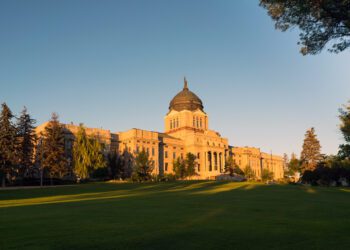By Taylor Anderson, Big Sky Weekly Assistant Editor
This is the second in a three-part series on the Ennis and Big Sky School Districts
ENNIS — The Ennis School District has been clouded in fervor over the past few years, and it’s not due to its academics. Several financial moves have put the district under the public and legal spotlight, and the board of trustees is now working toward remedying the issues.
But fixing the problems has been like trying to run a marathon through muddy water.
The school’s trustees were catapulted into a frenzied firestorm after the Teachers’ Retirement System ruled the school’s superintendent, Doug Walsh, along with the district owe more than $760,000 in improperly collected retirement funds, according to TRS executive director David Senn.
An opinion released in December 2011 by Attorney General Steve Bullock declaring the school used more than $9 million in improperly raised and allocated funds to build a new school further muddied the mess, and the town has been split over how to take the next step forward.
The two decisions highlighted only some of the legal struggles the board has faced in the past few years, and February 2012 marked a potential peak of problems before the trustees hope to work at sifting through the issues and coming to a long-lasting solution.
The town has been split, and the trustees are only beginning to see the full spectrum of its financial woes before it can work to right them in the eyes of the TRS, the state and the Ennis community.
___
Though money is the key issue in most instances with the Ennis School District, lack thereof isn’t. School district mill increases allowed the annual budget to skyrocket from about $6 million in 2004 to close to $17 million this year.
It wasn’t how much money the district had accrued that lit the fire, but how it chose to use it.
After building up funds from the 92.2 mills over several years, the board transferred the money into a fund intended for building a new, and much needed, grade school, thus skirting a public vote.
The school used $4,225,819.10 from non-voted adult education and transportation funds, on top of which they transferred $2,050,000 into a flex fund that was used for the building as well. With the direct and indirect funding, $6,275,819 (or 62 percent) of the $10 million project came from adult education and transportation.
County employees began questioning the use of funds, and in summer 2010 Madison County Deputy Attorney Chris McConnell asked the Montana Office of Public Instruction to conduct an audit on the school’s accounting.
In a letter from Aug. 16 of that year, Montana OPI Deputy Superintendent Dennis Parman told McConnell that although the transfer of funds technically wasn’t illegal in the eyes of the state, the trustees would be wise to plan for a drastic increase in adult education offerings.
“We assume the district’s unorthodox method of funding the project reflects the mutual desire of the school district and community to provide significantly expanded adult education opportunities in the community,” Parman wrote.
“If, in the future, the district does not provide expanded adult education opportunities to the community in this new facility proportional to the funding the taxpayers have provided in support of that effort, there will be an issue of significant concern at that time.”
Parman said in an interview in March that McConnell’s request had come after the foundation had already been poured on the now completed building.
“It looked as bad as it was,” Parman said. “They were raising over a million dollars and spending $25,000. The question is why? Because they were saving up money to build a new school.”
Madison County Treasurer Shelly Burke is said to have called for attention on the issue years in advance of the new building. She wished to stay off the record in speaking with the Big Sky Weekly.
Superintendent Doug Walsh didn’t return requests for comment for the article.
In December 2011, Montana Attorney General Steve Bullock stepped in and released a preliminary opinion on the school’s use of funds for the new building.
Bullock ruled that the money transferred from adult education and transportation savings into an infrastructure account for the new building was illegal, and transferring that much money required a public vote. Bullock’s decision—which holds the weight of law—set the ground rules for Montana schools to follow, as the case was unprecedented.
Separated by a mountain rage and a private road yet part of the same county, Big Sky’s Madison County residents have been stirring because of the money they’ve contributed to the Ennis School System over the past four decades.
Big Sky residents in districts 28 and 29 of Madison County have contributed about 50 percent of the property taxes collected annually due to the high price of real estate in those areas, which include the resorts and Yellowstone Club.
Those districts have contributed 74 percent of the Ennis School District budget since 2007.
___
The Ennis board of trustees voted after press time whether it would heed the county commissioners’ request of conducting an independent audit of the funds allocated over the past seven years.
If the board doesn’t agree to the independent audit, the commissioners have said they would conduct an audit themselves, according to trustee Lisa Frye.
Regardless of either audit’s outcome, Parman with OPI says the findings will only provide hindsight into the murky issue, and any solution would come from the trustees’ future decisions. There are several ways the board could show the community it’s working toward remediation.
For example, Parman said the board could choose to use any reserve funds to pay back taxpayers in the form of breaks from mills in future fiscal years.
Frye says there is a surplus that could be used, but it’s in adult education and other funds with restricted use. Regardless, she says, the taxpayers deserve a break.
“The taxpayers absolutely should see a reduction in school taxes this year because of the over taxation that has gone on. The adult education fund is not the only fund that has been over taxed,” Frye said.
The money some residents feel they’re owed has brought upon public scrutiny and has ended up in multiple court battles.
The first, from August 2010, was a yearlong suit filed by resident Dave Kelley against five trustees and Walsh. He alleged Walsh deceived the TRS, and also that the board violated open meetings laws, unlawfully used tax money and failed to provide public records for review. That case was dismissed about a year later by judge Mike Salvagni.
Then there’s the other elephant in the room: Superintendent Doug Walsh collected more than $760,000 in retirement benefits while receiving contract salaries from Ennis.
There is an ongoing contested case that TRS executive director David Senn says will determine how the group will recoup money paid to Walsh over the span of a decade.
Senn said Walsh would owe the benefits he’s received since 2001 plus interest, and that the school district owes employee and employer contributions that would have been submitted, plus interest.
Senn couldn’t comment on that case as it is ongoing, but said it could stay in court if the two sides can’t come to a mutual agreement.
___
Just what’s next for Ennis has been a Rubik’s cube issue in a town whose rift is pitting its residents against each other on how best to move forward.
Walsh announced in early February that he would resign as School Superintendent effective June 30 of this year. The trustees’ last meeting approved having an attorney draft a separation agreement with Walsh before his retirement.
An audit will detail how and where the board slipped up in its use of funds, but it won’t lay out how to rectify its blunders.
The AG’s opinion won’t likely result in direct action against the board, but rather lay the ground rules for Montana schools to follow when transferring funds.
Now, Ennis school board meetings are well attended and tense, and the community is keeping more involved with the trustees on a daily basis.
The storm didn’t sneak up overnight, nor will it clear up quickly.
Taylor Anderson can be reached at taylor@theoutlawpartners.com, or on Twitter @TaylorWAnderson.










